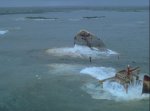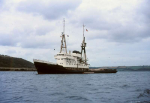Capt Popeye
Well-Known Member
They did more than just a little work, and like the fire extinguisher in the corner eventually 1 job would payback everything- just a matter of time.
Search for " Bill Deacon", he paid the price for ships not calling for a tug in time as did Penlee and probably others.
Hi does the Green Lily qualify ?




